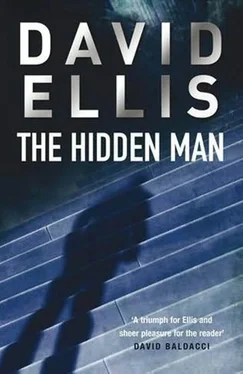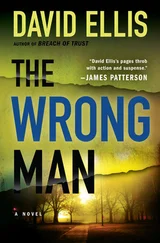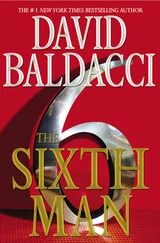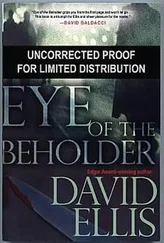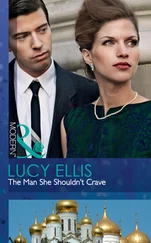“Was I not clear that we don’t have an agreement?”
“You will forget about those bodies and focus on Mr. Cutler’s acquittal. If you don’t, your brother will go away for ten years, Kolarich. And they will not be pleasant years. We will make it our highest priority to ensure that. I assume I don’t need to draw you a picture. You’ve had a preview, yes?”
Smith’s voice was shaking with anger-but, I thought, fear as well. I was really hitting a nerve here, a pressure point, to throw his words back at him. Why did he care so much about a delay of the trial? It didn’t make sense.
Forget about those bodies , he’d said. That, after all, had been what prompted Smith to exert pressure on me by framing Pete-it was after they’d dug up the bodies behind the school.
Was I on the wrong track here? Was Smith hiding his real fear? I’d been operating on the possibility that Smith’s people had killed Griffin Perlini, and they didn’t want me nosing around and discovering that. Was I off base? Maybe Smith wasn’t protecting someone who killed Griffin Perlini.
Maybe he was protecting someone who had killed those girls buried behind the school.
Someone who had killed Sammy’s sister, Audrey.
“You will withdraw that motion or you’ll be sorry,” Smith warned.
“Drop the case against Pete, Smith. Make it happen. Or I go forward with the motion.”
“You can’t win this game, Kolarich. Neither can Pete.” The phone line went dead.
I hung up the phone and pushed myself out of my chair on weak legs, contemplating this new idea. Was Griffin Perlini innocent of Audrey’s murder? Had someone else killed Audrey, along with those other girls-someone who had accumulated enough wealth over the years to be able to finance an operation now to make sure that Griffin Perlini’s murder did not reopen an inquiry into those murders?
I couldn’t deny the possibility. It would explain Smith’s desperation.
I went to the files in the corner of my office that Detective Carruthers had given me, files from Audrey’s case back in the day. I’d neglected them, because I thought they didn’t matter anymore. But maybe they mattered more than anything. I found the name I was looking for, looked through the lawyer’s directory until I found a phone number, and made the call.
“Jason Kolarich for Reggie Lionel,” I said.
ABOUT AN HOUR LATER, I found myself in the law firm of Guidry, Rogers, Lionel and Freeman. They were in one of the nice skyscrapers downtown, which seemed odd for a criminal defense firm, but they probably got a good deal on rent with the market being what it is.
“Reggie Lionel,” I told the young kid manning reception. He was playing with some contraption that allowed you to watch a video and make a phone call and do your taxes all in one. The digital divide wasn’t limited to the wealthy and the poor; it was age-based, too. By the time I’d said hello to this punk, he could have taken my photo, posted it on the Internet, stolen my credit card information, and learned what I had for breakfast.
“Third office down,” said the kid, who wasn’t inclined to escort me.
I knocked on the door, which was already open. Reggie Lionel was wearing an orange sweater and staring, through thick glasses, at a document. His eyes rose without his head of snowy hair moving an inch.
“Jason Kolarich,” I said.
“Come in,” he bellowed. I took a seat in an uncomfortable chair. Reggie Lionel was an old-timer by now, mid-sixties probably, which meant he’d gone through law school when black people were not exactly welcome. He’d jumped hurdles I’d never seen.
“Rare day off from court,” he said, flipping the document onto a cluttered desk. Criminal defense attorneys like Reggie Lionel work on volume, which means they spend almost every day in court. He looked me over. “We co-counsel?”
“No, nothing like that.” He figured I was jumping into some multiple-defendant case where we each represented one of the doers. “I’ve got a name from the past for you. A client from the late seventies, early eighties. Griffin Perlini.”
His eyes rose up, his lips parted. I wondered if, before the recent news of Perlini’s gravesite of victims had splashed all across the front page, Reggie Lionel would even remember the man he defended from a police inquiry well over twenty years ago. Maybe, maybe not, but the name had clearly been front and center recently, so he nodded with recognition.
I wondered what he thought about that, learning that his client might have been responsible for such terrible deeds, wondering if maybe his successful defense of Perlini had allowed the predator to kill and molest other young girls. That, in the end, is one of the great unspoken dilemmas facing a criminal defense attorney who represents the lowest of the low-you don’t want to lose, but you wonder if you really want to win.
But hey, even I can see that everyone needs a lawyer. Guys like Reggie, they have to have a pretty healthy view of the Bill of Rights to plod forth on behalf of the dregs of society.
“Sex offender,” he said.
“They liked him for a crime on the south side, Leland Park neighborhood,” I reminded him. “A young girl named Audrey Cutler.”
He closed his eyes and nodded. “Didn’t stick, though. Didn’t have eyes.”
True enough. I wondered if he knew that those “eyes,” Mrs. Thomas, had thought that Griffin Perlini was wrong for the murder. That, upon reflection, is what Mrs. Thomas had been saying to me when I visited her at the assisted living center. She didn’t think Griffin Perlini was the person she saw running from the Cutler’s home that night.
“Didn’t have a little girl, either,” he added.
No, they didn’t have Audrey, not then, but the discovery of the bodies behind Hardigan Elementary School would change that soon enough.
“Griffin Perlini is dead,” I said. “I assume you’ve heard.”
His eyes narrowed. Yes, clearly, he’d read that article as well in the Watch ’s coverage, or on television. But dead or not, Griffin Perlini had been his client, and if he thought there was any chance of a case being made against Perlini, even posthumously, he’d clam up.
“I’ve got the guy they like for his murder,” I said.
“The girl’s brother. Right. Sam, I think.” Lionel’s mouth ran around that idea, seemingly ending up with approval. These guys hold their noses and do their jobs, but they probably don’t mind when rough justice comes the way of their scumbag clients. I doubted that Reggie Lionel had lit a candle for Griffin Perlini following his murder.
“I want to prove that Perlini killed that little girl. Audrey Cutler,” I added.
“Audrey.” He nodded. “Yes. Audrey.” He gave me an ironic smile. “Way it works usually, the defense attorney’s supposed to defend his client, not implicate him.”
“Yeah, that rings a bell,” I answered, a little too abruptly for someone looking for a favor. “Look, I just want to know if I’m barking up the right tree. I mean, the cops homed in on your guy Perlini in a heartbeat, given his background. And you remember, he had photographs of little girls, including Audrey, all over that coach house.”
He kept nodding with me, but he wasn’t talking.
“And you were smart enough to keep a lid on your client.”
Still nodding, now smiling as well. I thought the details were coming back to him, if they hadn’t already.
“So the cops focused on him immediately, and he wasn’t talking. I’m envisioning the possibility here, Reggie, that maybe they got the wrong guy.”
“Been known to happen.”
Only one of us was enjoying this. But I had to play this his way, because a black man making it through a legal career defending criminals did not get where he was by taking people’s shit. “Look, I’m not asking you to divulge confidences. How about you stop me if I make a relevant point?”
Читать дальше
